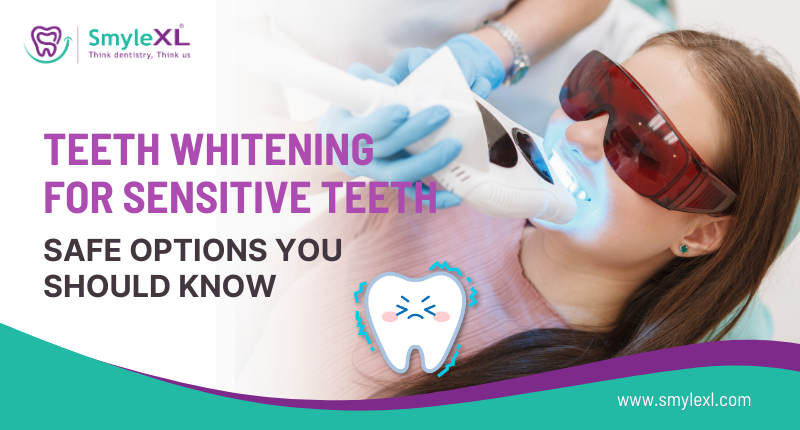There’s nothing like a bright, white smile to boost confidence. But for those with sensitive teeth, the thought of teeth whitening can be as nerve-wracking as biting into a scoop of ice cream, even on a hot day. If you’ve ever winced while sipping hot chai or cringed after eating something cold, you know how real tooth sensitivity can be. The good news? Teeth whitening is still possible—you just need to choose the right approach.
Why Does Teeth Whitening Cause Sensitivity?
Teeth sensitivity happens when the enamel gets thinner or when gums recede, exposing the dentin underneath. Many whitening treatments contain strong bleaching agents like carbamide peroxide or hydrogen peroxide, which can penetrate the enamel and trigger temporary sensitivity. But don’t worry, you don’t have to live with dull teeth just because you have sensitive ones. Let’s explore some safe teeth whitening options that won’t leave you regretting your decision.
Gentle Teeth Whitening Options
1. In-Office Professional Whitening
If you have sensitive teeth but still want noticeable results, professional teeth whitening at a dentist’s office is a great option. Dentists use controlled amounts of whitening agents and can apply desensitizing gels to reduce discomfort. Plus, the results are faster and more even compared to DIY methods.
2. Low-Peroxide Whitening Gels
Most over-the-counter whitening products have high peroxide concentrations that can be harsh on sensitive teeth. Instead, look for whitening gels with a lower peroxide percentage. These take longer to show results, but they are much gentler on your teeth.
3. Whitening Toothpaste for Sensitivity
A good starting point is using a whitening toothpaste specially designed for sensitive teeth. These contain mild abrasives and ingredients like potassium nitrate that help reduce sensitivity while gradually whitening your teeth.
4. Whitening Strips for Sensitive Teeth
Regular whitening strips can be too strong for sensitive teeth, but there are strips made with lower peroxide levels or alternative ingredients like hydrogen carbonate. They work more gently and cause less irritation.
Tips to Prevent Sensitivity During Whitening
Use a Desensitizing Toothpaste: Start using a sensitivity-relief toothpaste at least a week before whitening treatment to strengthen your teeth.
Apply Fluoride Gel: Fluoride helps strengthen enamel and reduce sensitivity, making your teeth more resistant to whitening discomfort.
Limit Acidic Foods: Avoid excessive consumption of acidic drinks and foods like soda, citrus fruits, and spicy foods that can erode enamel.
Don’t Overdo It: Whitening too often can wear down your enamel, making sensitivity worse. Stick to the recommended usage guidelines.
A Brighter Smile Without the Pain
Having sensitive teeth doesn’t mean you have to give up on teeth whitening altogether. With the right approach, you can enjoy a whiter smile without that sharp zinging pain. Whether you opt for professional teeth whitening or a gentle at-home treatment, there’s always a safe way to get the results you want. So smile brighter and enjoy your favorite foods—without the cringe!
Book an appointment with our expert at SmyleXL Dental Clinic for more inforamtion about teeth whitening.
Note: This blog is for information purposes only, and it is always recommended that you consult a dentist before opting for any treatment option.










